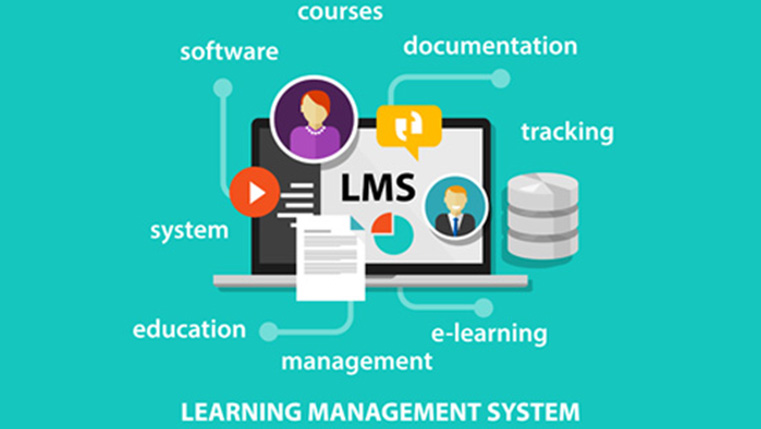9 Important Features of an LMS That Shouldn’t be Overlooked

ELearning courses are one of the most popular means to train your employees in the corporate world, and what helps you host your numerous eLearning courses? Learning Management Systems (LMS). An LMS helps you to host, manage, and deliver your training courses to the learners, and thus, having an LMS that provides all the basic features is always preferred. But, apart from the basic features, there are many extra features to make the most out of your training sessions. To make sure you don’t miss out on the perfect LMS for your organization, this blog lists 9 such important features of an LMS that you should not ignore.
Are You Looking for a Modern LMS to Host Your eLearning Courses?
Here are a few features you should always consider while you are choosing an LMS:
- Scope for Data Relocation
- Personalized Reports
- Multiplatform Accessibility
- 24/7 Support Services
Keep reading to know a few more important features of an LMS.
9 Features of an LMS That are Often Overlooked
1. Scope for Data Relocation
Organizations have a lot of data to deal with, and while the data can be stored on a hard disk, a considerable amount of data needs to be accessed first-hand. Your new LMS needs to have a streamlined process for data relocation so that you can access your important data at your convenience. The modern LMS usually supports a lot of formats so make sure the data migration process is smooth and straightforward.
2. Built-in Gamification Tools
While you are choosing an LMS, make sure the LMS includes the gamification tools such as badges, awards, levels, and leaderboards to make the courses interactive and engaging. The ability of games and the concept of gamification help organizations engage learners in their eLearning sessions since the major workforce in today’s corporate industry is dominated by millennials and GenZ. These generations prefer interactive and immersive learning sessions because of their tech-savvy nature. It provides instant feedback and facilitates a competitive learning environment that motivates learners to perform their best. When employees are engaged in their eLearning courses, it helps them to retain most of their knowledge which will eventually increase the training ROI for organizations.
Clear out your misconceptions regarding the ROI and eLearning with the help of this free eBook.
3. Social Media Support
Learning is more fun with your colleagues, so a modern LMS needs to have a feature that allows social learning with the help of social media and other related tools. Integrating social learning in your online training helps the learners enjoy their training, while they also get the option to learn different things from other learners with the help of social discussion or open debates. The social media support feature in an LMS also helps the organization to increase overall participation.
4. Personalized Reports
Almost every LMS has the feature to generate a generalized report that covers basic metrics such as engagement rates and completion rates but that is not enough. Personalized reports are an important addition to help the organization understand the preferences of their learners along with their strong and weak aspects. An LMS should be able to track the performance of its employees with the help of personalized reports and learning analytics so that organizations get the most out of their training budget.
5. Collaborative Plug-ins
As we have already discussed social media support, it is not the only way to facilitate collaborative learning. To ease the communication among learners and mentors, your LMS should have the required plug-ins that allow video conferencing, group surveys, and other interactive activities to be carried out seamlessly. If your LMS doesn’t have such additional plug-ins, you might have to invest extra bits in third-party tools, to meet the needs of your learners.
6. Simplified User Interface and User Experience
While we have been discussing so many features and stuff, they are of no use if you don’t understand how to access these features, hence a simplified UI and UX are extremely crucial for any LMS. Always make sure the LMS you choose, has an easy-to-use interface, where all the necessary options can be accessed hassle-free by beginners. For example, a basic dashboard will help the learner gain insights about the various courses they have enrolled in along with their current completion status. The assessments or sub-topics in a course should also be accessed in a non-linear format that supports free navigation throughout the course and facilitates self-paced learning.
7. Multiplatform Accessibility
In today’s world, desktops are not the only devices learners would have to use, to access their training courses, multiple pocket-friendly devices such as tablets or mobiles are becoming more and more popular. If your LMS doesn’t allow you to access the courses on different platforms, or if the LMS doesn’t incorporate responsive courses, it would be considered an impactful downside. Apart from responsiveness, your LMS should also allow the learners to download the courses, so that they can truly access them anytime, anywhere, even without internet connectivity. Make sure the responsiveness or multi-device support does not downgrade the quality of the course.
8. Brand Integration
Your eLearning courses are not complete unless your brand isn’t displayed in some or the other way, and things like a logo or a watermark make it easier for your brand to convey its image in the corporate world. Customizations like these can help your courses to have their own identity and prevents content theft as well. Apart from logos, elements such as color themes, slogans, graphics, and typography are other impactful branding elements that can be integrated within your training courses with the help of your LMS.
9. 24/7 Support Services
This is probably another basic feature that might get overlooked because of the sole fact that it’s way too normal for every LMS to have it. Though it is true to an extent, consider the degrees of support your LMS provides, like some of them only have email support while some provide live chat support or telephone support as well. Before you choose the perfect LMS for hosting your online training courses, make sure your support services are top-notch to help the learners have a problem-free learning experience.
Parting Thoughts!
Choosing an LMS is indeed a challenging task, but once you get the hold of your training goals, and what type of training you wish to deliver, it becomes easier to choose the right LMS to host your training courses. Apart from the first-hand features offered by an LMS, you can consider outsourcing the LMS services such as administration and support. To make things easier for you, here is a free eBook that will help you to make the right and smart investments while choosing the LMS.





